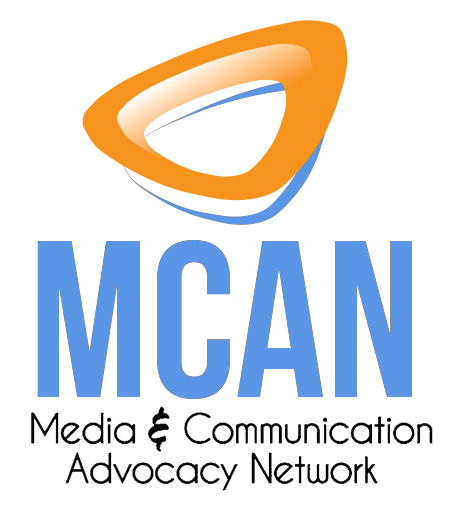Naa Adjeley, an adolescent girl who lives in Jamestown, a densely populated fishing community in Accra became pregnant while in Senior High School. She is one of the many adolescent girls who dropped out of school due to pregnancy in her community.
“A major cause of teenage pregnancy here is peer pressure, we want to have everything our friends have and we end up having unprotected sex with men for these frivolous s things. Another cause is parental pressure, sometimes our parents force us into these circumstances knowingly or unknowingly,”
Now a teen mother and a sexual and reproductive health and rights (SRHR) advocate, Naa Adjeley, is a member of the United Nations Population Fund (UNFPA) supported Adolescent and Youth Club called YoLe Young and Wise, managed by the Planned Parenthood Association of Ghana (PPAG).
She joined the youth club when she was eight weeks pregnant. Naa Adjeley said she would have been better informed if she had the information she has now before becoming sexually active. “I would have gone in for a family planning method to prevent this unplanned pregnancy. I think young people should be educated and engaged more on their sexual and reproductive health and rights”.
She refers adolescent girls in her area to visit the adolescent corner at the Ussher Clinic in Accra. She is currently making arrangements to go back to school to fulfil her dreams.
Naa Adjeley’s story is one of the successful outcomes of the Reproductive Health Education (RHE) component of The United Nations (UN) Joint Programme on Empowering Adolescent Girls through improved access to Reproductive Health Education (RHE) and rights-based quality SRH services in Ghana.
Joint Programme
The UN joint programme, with funding support from Global Affairs Canada, works to support the government of Ghana to deliver an effective multi-sectoral response to address the interrelated needs of adolescent girls.
The goal of the programme is to empower adolescent girls, including the most vulnerable through provision of, and access to, gender-responsive reproductive health education (RHE) and youth-friendly sexual and reproductive health services, including family planning and contraception.
The Country Representative of the UNFPA, Mr. Niyi Ojuolape explained that varied bases of inequality, such as poverty, geography and gender norms worsen the plight of adolescent girls aged 10 to 19, making them one of the most vulnerable groups among the children and youth in Ghana.
“Adolescent girls remain vulnerable to teenage pregnancy, exposure to violence, abuse and sexually transmitted infections, child marriage, school attrition, Obstetric fistula and maternal mortality,” Mr. Ojuolape stated.

Mr Niyi Ojuolape with some adolescent girls after a programme to empower them with sexual and reproductive health information
He indicated that targeted interventions have improved the outcomes of adolescent girls in education, health and protection yet, discrimination against women and girls, and disadvantages based on gender, persists across various areas of life and in traditional practices, “and these must be highlighted as the world observes this year’s International Day of the Girl Child which falls on October 11.”
Ending Child Marriage
Mr. Ojuolape added that the UNFPA was also implementing the Global Programme to ending Child Marriage, which also focuses on empowering girls, and has therefore built synergies with the Adolescent Girls Programme to reduce vulnerabilities of marginalised girls to SGBV and adolescent pregnancies through the creation of livelihood opportunities, organisation of gender-equality clinics and provision of SRH information and services.
In addition, partnerships in the organisation of business and leadership fairs for female porters (kayayei) has created visibility on the livelihood activities undertaken through the enterprise development & SRH centres established under the Child Marriage programme. The partnership is also ensuring that adolescent mothers who are out-of-school are provided with livelihood skills and SRH information and services, Mr. Ojuolape said.

Key Interventions
The Programme Coordinator, Dr. Esi Awotwi also said efforts in the joint programme, since 2018, have been towards improving adolescent girls’ access to youth-friendly and gender-sensitive RHE; improving adolescent girls’ access to quality, youth-friendly, and gender-responsive, sexual and reproductive health (SRH) services and; facilitating favourable environments and increasing capacities of adolescent girls to advocate for their sexual and reproductive health and rights.
The programme, she said, targets adolescent girls in and out of school, married and unmarried, pregnant teens, adolescent mothers, migrant girls (Kayayei), street girls, refugees and girls with disabilities as primary beneficiaries and young women aged 20-24 years as secondary beneficiaries.
It is being implemented in the Volta, Oti, Greater Accra, Western, Ashanti, Central, Bono East and Upper East Regions through government structures, academia, the private sector, media and civil society organisations to stimulate ownership and sustainability.
“With a strong male engagement component, the programme employs holistic innovative approaches through existing national structures to engender ownership and sustainability,” Dr Awotwi said.
Results
According to her, the programme had reached over 100,000 adolescent girls with reproductive health education, including information on sexual and reproductive health, sexual and gender-based violence and life skills.
“Over 61,000 marginalised adolescent girls, particularly out of school artisans are in training, girls with disabilities, refugee girls and Kayayei to SRHR have benefitted from legal literacy and over 10,000 girls have been exposed to mentoring and livelihood development opportunities,” Dr Awotwi added.
She further said that over 10,000 girls, including 785 Kayayei, 547 girls with a disability and 194 refugee girls also participated in safe spaces, mentoring and leadership programmes.
The mentoring programmes, she explained, include the ‘Because I Want to Be’ programme led by the First Lady, Mrs Rebecca Akufo-Addo, the Chief Justice Mentoring Programme, Mentoring Programmes with Muslim girls led by the wife of the Vice President, Mrs Samira Bawumia and the ‘Beyond Inspiration Mentorship’ programme involving personalities such as parliamentarians, media personnel and youth activists.
Highlight
The United Nations Joint Programme on Empowering Adolescent Girls through improved access to Reproductive Health Education (RHE) and rights-based quality SRH services in Ghana has reached over 100,000 adolescent girls with reproductive health education, including information on sexual and reproductive health, sexual and gender-based violence and life skills.
By Rosemary Ardayfio

